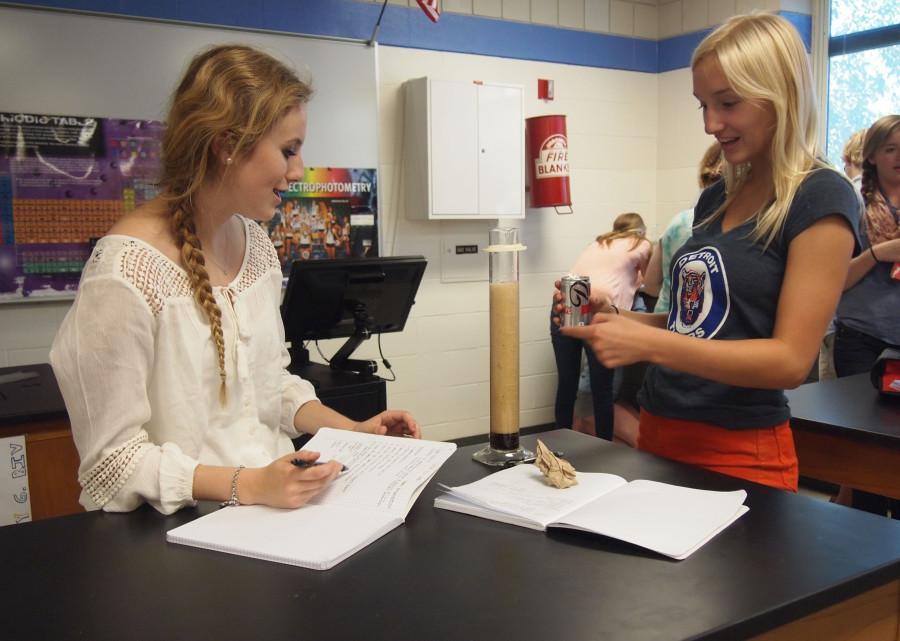Early on in the trimester chemistry teacher Mike Reed told his class to find the pressure inside a can of Coke, the only catch was he didn’t tell them how to do it.
“The fact that it was self directed made it rather daunting for me,” senior Brooke Mattson said. “I was grateful that Reed gave us a few nights to prepare.”
Beginning in sixth grade, the way science is taught throughout the district is about to change. This is due to a recent partnership between the science department and the Van Andel Education Research Institute. The Institute focuses on inquiry based learning, or learning through research rather than a lecture.
“It’s about being able to come up with a way to answer a question,” Reed said. “It’s about learning to solve problems. They may not know what to do, but they had to do something.”
The partnership between the Institute and the science department was offered to all the districts in Ottawa County. Grand Haven jumped on the offer with the science department voting unanimously to proceed with the partnership. After presenting themselves to a panel at Van Andel, the science teachers from the high school and both middle schools visited the Institute in Grand Rapids for training over the summer.
“How we learn science changes and it is important that students ask good complex questions,” Van Andel Science Education Specialist Robby Cramer said. “A lot of questions don’t need investigation but thorough research. When you pull in secondary resources there all different ways of putting wind into the lesson. Now students are reading with a purpose.”
Inquiry based learning has been put in place in other districts in the county and many students are finding success with the new style of learning.
“Students in Hudsonville who excel in school find it challenging,” Grand Haven Public School’s curriculum coordinator Mary Jane Evink said. “They want the teacher to give them the answers so they can memorize and study them. Students who typically struggle in science are finding great success. They love the discovery and knowing there is more than one correct answer.”
Even student’s here have warmed up to the idea of learning through experimentation.
“It hasn’t changed how I learn but is great if you’re a hands-on learner like me,” Mattson said. “I think being able to actually do the experiment and see results makes it much easier to retain [information] and relate it to real life.”
Not only are students learning to solve problems but they are preparing for education beyond high school.
“I’m having them do a lab notebook not just data but everything else that goes along with a lab,” Reed said. “That’s what real scientists do it’s something they will have to do in college.”
Overall the district is looking forward to the changes in teaching style.
“This is an important adjustment to bring up science scores and to make students more college and career ready,” Evink said.

